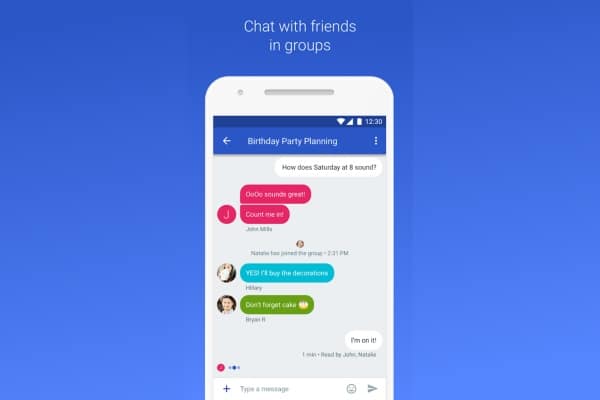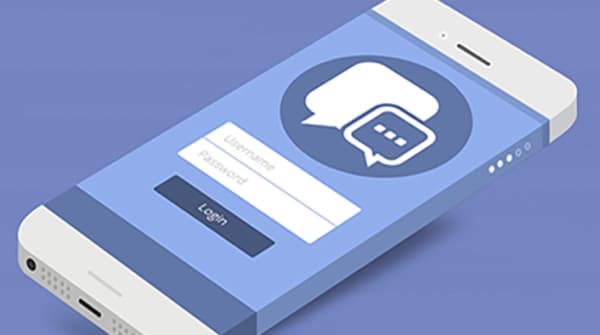SMS and MMS seem decidedly archaic compared to the standards established by today’s data-based messaging platforms. The industry at any moment could do with an update to its default communication standard. Fortunately, operators are already moving to the new Rich Communications Services (RCS) standard, and next year we are expecting wider distribution for consumers.
The basics
As a general overview, RCS is part of the new Advanced Messaging standard designed to greatly improve messaging features installed on phones by default. Together with text messages, RCS will also allow you to send higher quality images up to 10 MB in size, group chats, location sharing and even video calls by default. The service also supports reading confirmations and typing indicators that you probably already know from other services.
Unlike SMS, the new technology can be integrated with contact apps to see who supports the service and to share contacts and groups. RCS is also trying to go beyond the functionality seen in many of today’s messaging apps. The standard can also be used to share multimedia content, location and other information while already in a phone conversation.
How to install and customize ringtones on Android phones
However, to send and receive Rich Communications Services messages, both parties must use a compatible messaging app and network. Fortunately, the system is designed to send SMS or MMS even when the recipient does not support RCS.
In theory, the introduction of RCS will avoid the annoyance of having to accept a third-party platform for group or video chats, as the service is linked to your mobile number and future phone owners will have these features immediately available.
The goal is to provide a consistent interoperable messaging service on mobile devices and networks. At least for Android, there seems to be no work to do to bring RCS to the iPhone. In addition, Apple already has its famous iMessage service.
As this new standard expands the predefined SMS and MMS features provided by the operators, these companies must also be part of RCS to make it used by a wide range of consumers and this has proved a little more complicated. Fortunately, RCS is connected with the GSMA universal profile.
How to transfer files from Android to PC [2019]
GSMA is a global association of network operators and companies working on the creation of unified industry standards. The universal profile is a specification that outlines a series of advanced call and messaging features and how communication services must be built to support these features.
Participation in the universal profile is not necessary to support advanced messaging but is designed to accelerate implementation and ensure compatibility. Incoming smartphones created in collaboration with the program will be provided with the integrated Advanced Messaging app, while other developers are free to create global clients to support messaging on all devices and networks, but more on that later.
The 1.0 release of the Universal Profile standard made its debut in November 2016 and covers the main features. These include contact tracking, messaging, group chat, file transfer, audio messaging, video sharing, multi-device, location sharing and more. Version 2.0 focuses on the developer, with API, plug-in integration, improved authentication, and app security.
In the United States, all four major operators support the standard, although AT & T is the only one that does not support any phones at the moment. We’ll just have to see how it works. Vodafone and Deutsche Telekom have covered most of Europe, Claro is bringing the service to Latin America and South America, while KT, LG Uplus and SK Telecom are all registered in South Korea. A total of 55 domestic operations has already launched Rich Communications Services.
How to block pop-up ads on Android
Although all these names are involved, Google has taken on the responsibility of providing the main platform for this new messaging service.
Jibe, which Google purchased in 2015, has developed a universal Android client based on the universal profile for advanced messaging. Google also offers a hosted service for operators to start and manage advanced messaging services, without having to implement their own infrastructure. This should speed up the rollout and guarantee the compatibility of the service for all users.
For operators, this “Jibe Hub” offers a simple connection to the global RCS network, so that messages from any device can quickly reach any other, regardless of their network manager.
It also supports access to third-party RCS networks, which some operators may choose to implement rather than relying on Google’s infrastructure, particularly in countries outside the United States.
Best Android emulators for PC and Mac of 2019
The Google RCS client for consumers is Android Messaging, which offers support for SMS, MMS, and RCS in one place and is interoperable with any RCS-compatible client on any other smartphone or operator.
Perhaps the best thing is that this application is hosted and updated through the Google Play Store, so the new features can be easily applied.
Google also provides an open source version of the client and releases APIs to help improve customer experience.
If you don’t like the Google app, Samsung also supports RCS via Samsung Messaggi. The two companies are working closely together to ensure equal functionality.
When can I start using it?
Some of you may already be using RCS messaging, but many others may not. There are many pieces that need to be installed, including app, device and operator support. Fortunately, practically all new Android devices come with pre-installed Android messages, so it is one less obstacle to overcome.
The conclusion is that the adoption of RCS is frustratingly slow. Although going forward, we will see a growing number of new smartphones supporting the out-of-the-box standard.



